Verb identification Worksheets for Ages 7-8
6 filtered results
-
From - To
Welcome to our interactive "Verb Identification Worksheets for Ages 7-8"! Designed specifically for young learners, these worksheets engage children in recognizing and using verbs effectively. Through a variety of fun exercises, including fill-in-the-blanks and matching games, students will enhance their grammar skills while enjoying the learning process. Each worksheet is crafted to promote critical thinking and creativity, allowing children to explore verbs in different contexts. Perfect for classroom activities or at-home practice, our resources support educational growth while making grammar exciting. Discover the joy of learning verbs with our comprehensive worksheets tailored to meet the needs of blossoming 7-8-year-olds!
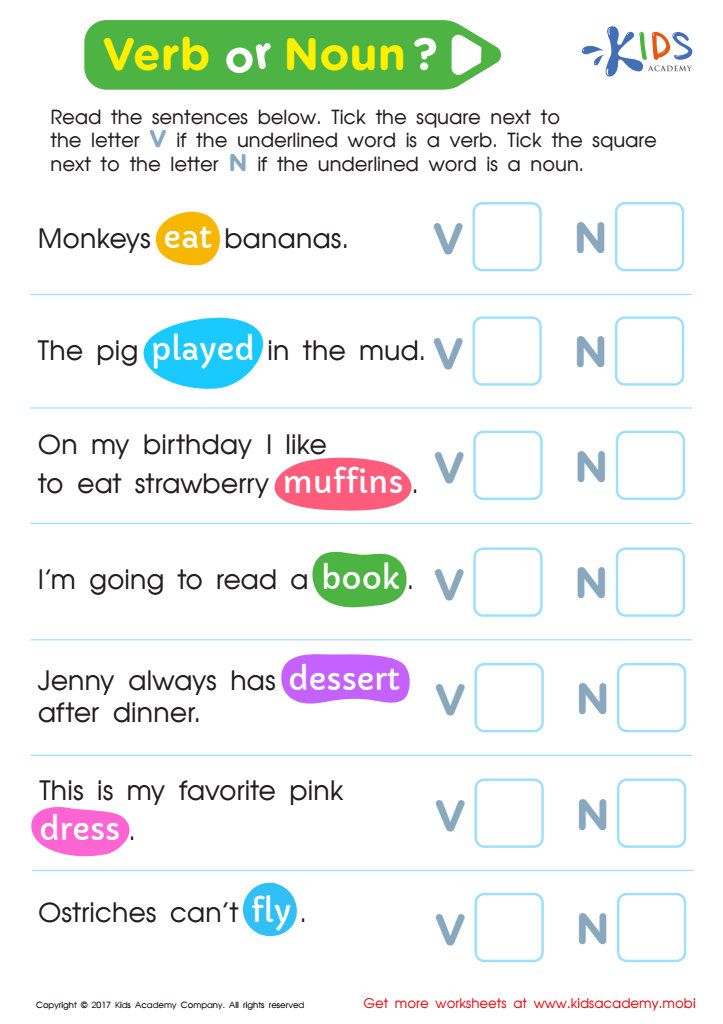

Verb or Noun Worksheet
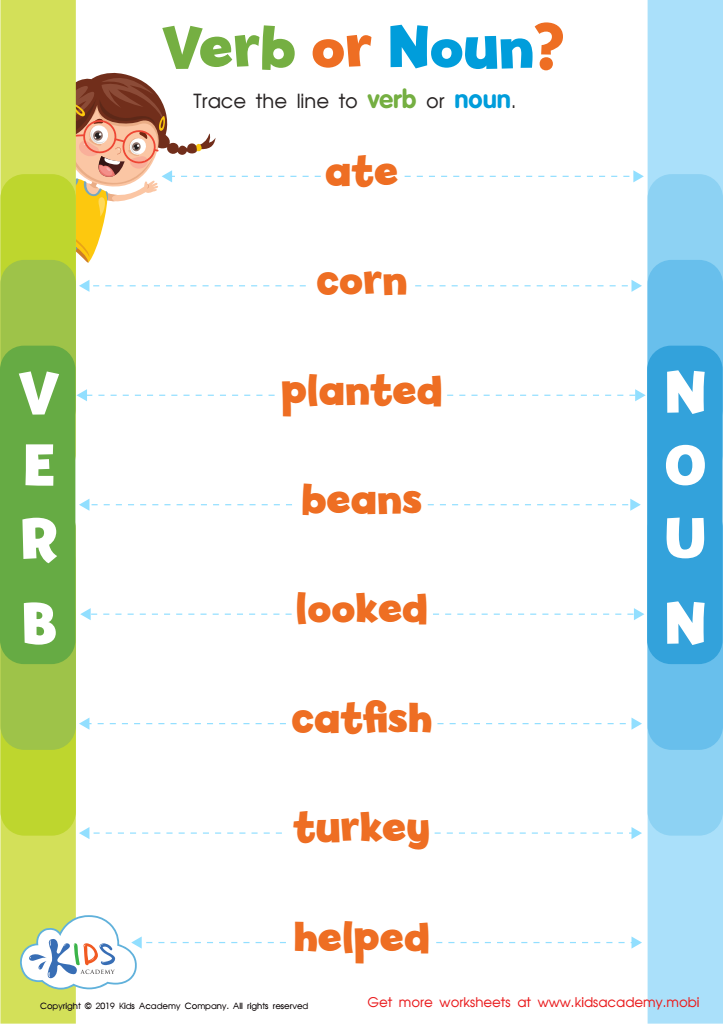

Verb or Roun Worksheet
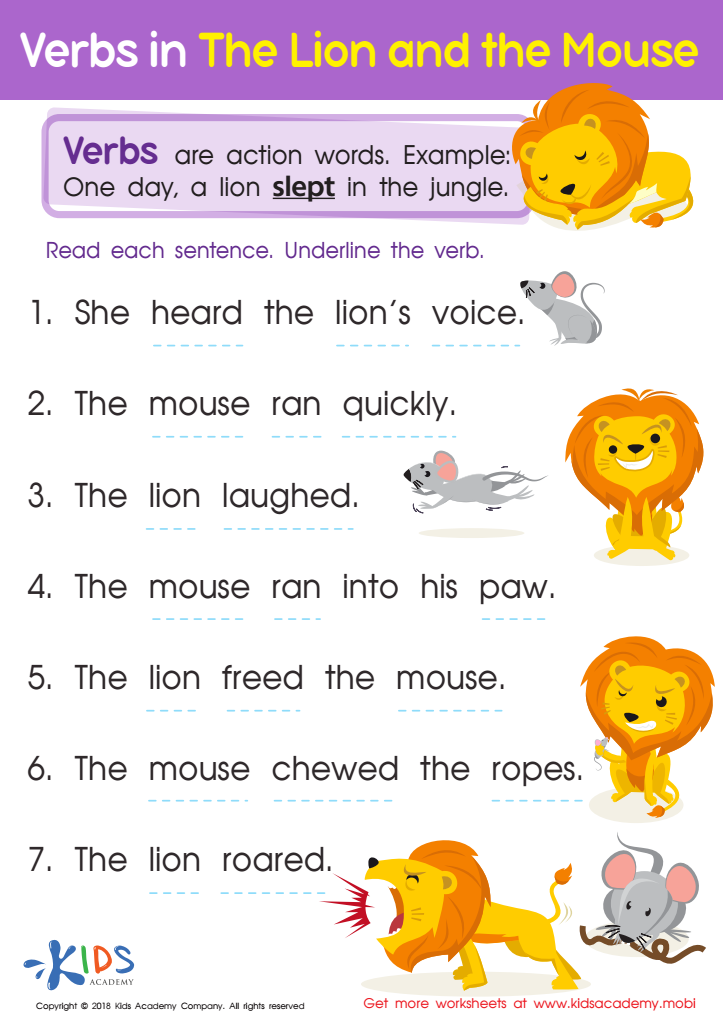

Verbs in The Lion and the Mouse Worksheet
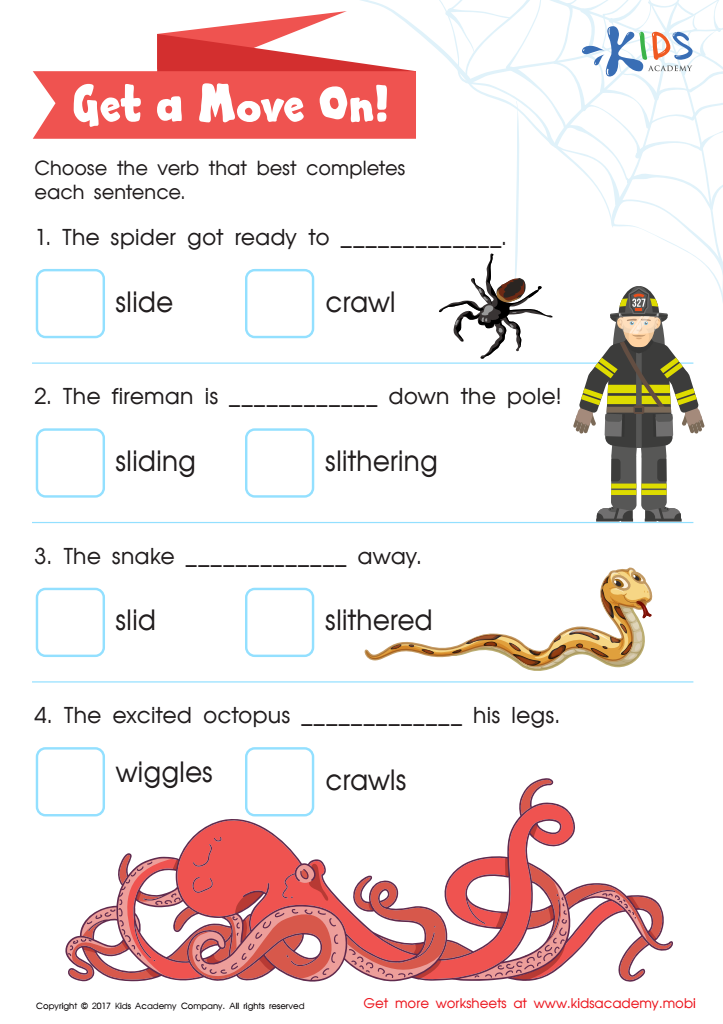

Verb Worksheet
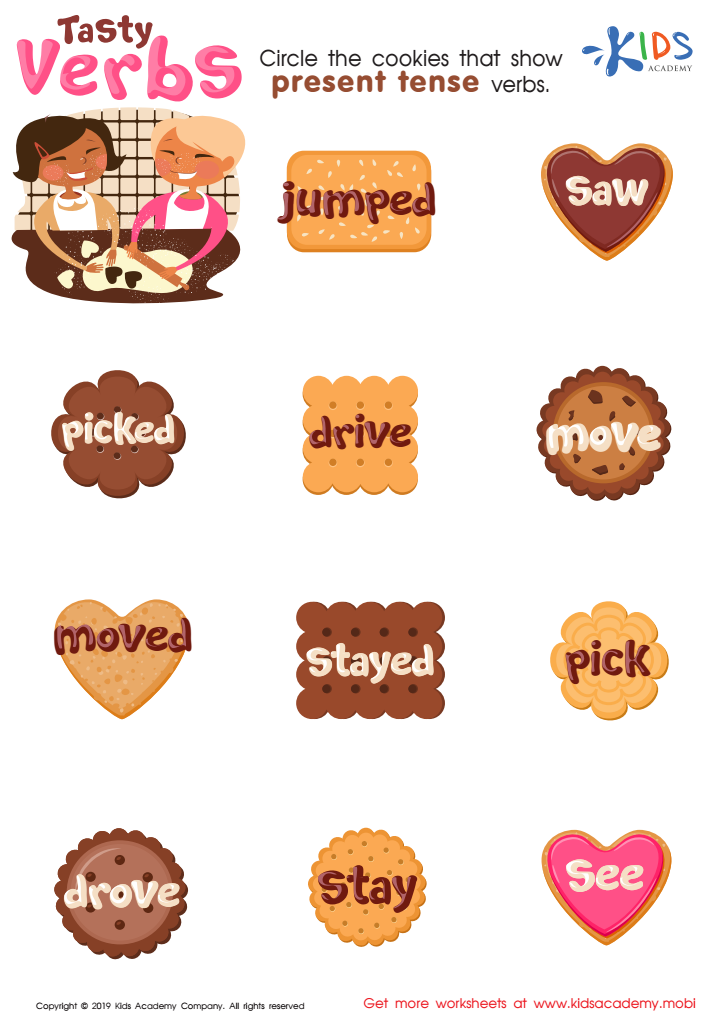

Tasty Verbs Worksheet
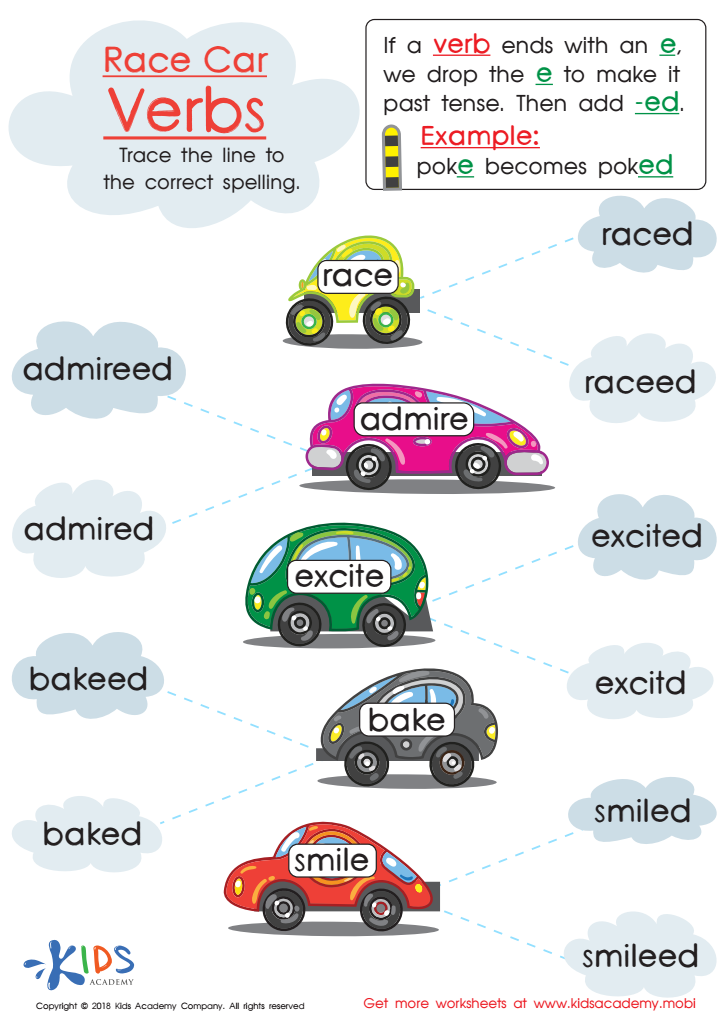

Race Car Verbs Worksheet
Verb identification is crucial for children aged 7-8 as it lays the foundation for effective reading, writing, and communication skills. At this stage, children are enhancing their grammatical knowledge, enabling them to express their thoughts clearly. By understanding verbs, they learn to recognize action words that convey meaning in sentences, which is vital for comprehension.
As students engage with more complex texts, identifying verbs helps them dissect sentence structures, making it easier to understand the roles different words play. For teachers, incorporating verb recognition into lessons encourages active participation and enhances literacy skills, fostering a love for reading.
Moreover, strong verb identification skills boost writing proficiency. Children who know how to use and identify verbs can create more dynamic sentences, improving their ability to convey emotions and actions vividly. This is essential not just in academic contexts but also in daily communication.
For parents, supporting their children in learning about verbs can lead to increased confidence in both spoken and written language. Encouraging this skill set can enhance parental engagement in homework and literacy activities, paving the way for better academic outcomes. In summary, nurturing verb identification contributes significantly to a child's overall linguistic development and self-expression.

 Assign to My Students
Assign to My Students






















